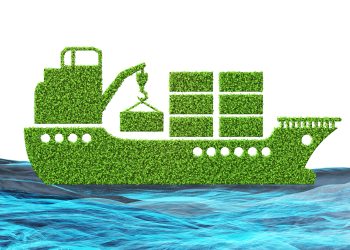The European Commission released a new proposal for a revised law to govern the delivery of waste from ships in ports and fishing harbours. The proposal includes vital changes in how ships will deliver waste in ports and pay for it.
The newly proposed Port Reception Facilities (PRF) Directive aims to prevent the discharge of waste at sea by giving incentives through fee payment structures, obligations to deliver waste at port and mandatory inspections to ensure compliance.
The new proposal introduces measures to address marine litter. Ships contribute an average 32% to marine litter in EU waters with values up to 50% for some sea basins, according to the European Commission. This new proposal also helps Europe comply with the international Convention for the Prevention of Pollution from Ships (MARPOL).
A major change is the proposal for a 100% indirect fee system for waste delivery. This means that all ships pay for the total cost of waste delivery in ports, regardless of whether they deliver any waste, which is considered very important to discourage waste dumping at sea.
Commenting on this development, Seas At Risk posted the following on its social media: “To prevent marine litter from ships, the EU Commission proposed the most efficient measure: all ships will have to pay for the total cost of waste delivery in ports, regardless of whether they deliver any waste. Let’s hope this will be quickly turned into law!”
Other changes in the directive promote an increased focus on decreasing waste from recreational craft and fishing vessels.
Emma Priestland, Marine Litter Policy Officer for Seas At Risk said: “Tthe 100% indirect fee system is the best way to decrease marine plastic pollution from ships. This new proposal is great news for the oceans.”
However, the new proposal is only the first step. It also has to be negotiated by the Council and European Parliament, a process that is expected to last throughout 2018 and possibly into 2019 before the proposal, finally, becomes law.
“The fishing sector features quite dominantly as a major contributor to marine litter, and though we welcome the inclusion of measures aimed at reducing lost fishing gear and its impacts on marine biodiversity, stronger action is needed. We hope the proposal will be strengthened as it proceeds through the legislative process, with the addition of measures such as fishing gear recycling targets and deposit schemes,” mentioned, Tim Grabiel, Senior Lawyer at the Environmental Investigation Agency.






























































